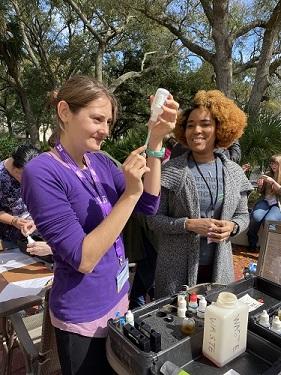
Workshop Descriptions
QA/QC Workshops
Get certified to monitor your local waterways by attending one of Adopt-A-Stream's QA/QC workshops! QA/QC stands for Quality Assurance/Quality Control, meaning volunteers must all be trained to use the same techniques to ensure that the data they submit are accurate, precise, and credible. Adopt-A-Stream trainers will provide hands-on instruction in monitoring techniques and allow volunteers to practice taking samples out in the field. To become certified, volunteers must pass a written and practical test at the end of the workshop. Certifications must be renewed annually. The following workshops offer QA/QC certification:
Chemical Monitoring Workshop
~ 4 hours

The Chemical Monitoring Workshop is designed to teach volunteers about basic stream water chemistry and how to conduct various chemical tests using hand-held field equipment. The basic set of tests include dissolved oxygen, conductivity, pH, and temperature. Volunteers who collect data within 10% accuracy and pass the written test with a score of 80% or better will be certified to conduct chemical monitoring.
This workshop may count as 4 hours of Georgia Standards of Excellence professional development.
Macroinvertebrate Monitoring Workshop
~ 5 hours
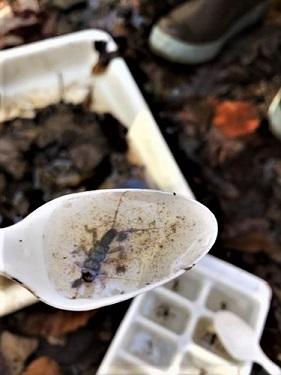
Stream macroinvertebrates (insects, mollusks, & crustaceans) are excellent indicators of the condition of both water quality and habitat. The Macroinvertebrate Monitoring Workshop will focus on collection techniques for either rocky or muddy bottom streams and macroinvertebrate identification. Volunteers who identify the macroinvertebrates with 90% accuracy and pass the written test with a score of 80% or better will be certified to conduct macroinvertebrate monitoring.
This workshop may count as 5 hours of Georgia Standards of Excellence professional development.
Bacterial Monitoring Workshop
~ 4 hours
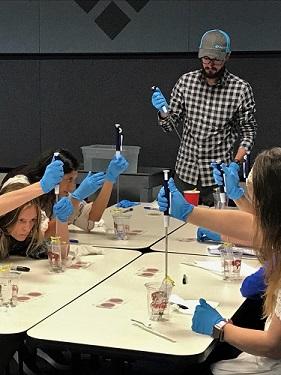
The Bacterial Monitoring Workshop teaches volunteers how to monitor E. coli levels in their streams and identify possible sources of pollution. E. coli is a type of bacteria that is often used to indicate the presence of other, harmful strains of bacteria in streams. This workshop will cover collecting and plating a water sample, incubating the plates, and interpreting the results. Volunteers who demonstrate proficiency in sampling and plating and pass the written test with a score of 90% or better will be certified to conduct bacterial monitoring.
This workshop may count as 4 hours of Georgia Standards of Excellence professional development.
Non-QA/QC Workshops
These fun and informative workshops will help you get to know your local waterways and provide you with a better understanding on how to protect them. These programs do not require QA/QC certification; therefore, if you are new to Georgia Adopt-A-Stream, or are simply looking for a lower level of involvement in the program, these are a great option. Contact us at [email protected] if you would like to participate in or organize one of these workshops.
Introduction to Monitoring Workshop
~ 1 hour
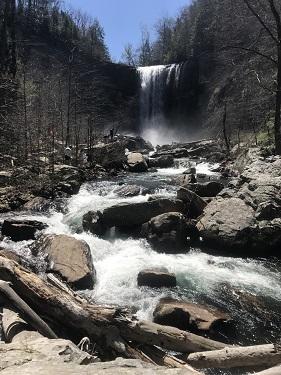
If you are interested in learning more about water quality issues that pose a threat to our state's waterways and how you can get involved in preventing them, the Intro to Monitoring workshop is perfect for you. This workshop will provide an overview of the sources and impacts of non-point source pollution, the importance of water quality monitoring, and the different elements of the Adopt-A-Stream program. This workshop is great for school and community groups, as well as those looking to learn a little more about the program before getting certified.
Watershed Assessment Workshop
~ 2 hours
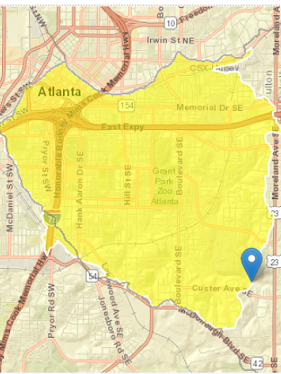
This workshop is based on the manual Getting To Know Your Watershed, and it is designed to show volunteers how to take a comprehensive survey of the geography of the watershed, the land and water uses within it, potential and actual pollution sources, and history of the waterbody and its watershed. Volunteers will learn how to use online tools to delineate and assess their watershed. Land use and impervious surface is discussed as it pertains to the watershed survey data forms. This workshop is not required, but is highly recommended.
This workshop may count as 2 hours of Georgia Standards of Excellence professional development.
Visual Assessment Workshop
~ 2 hours
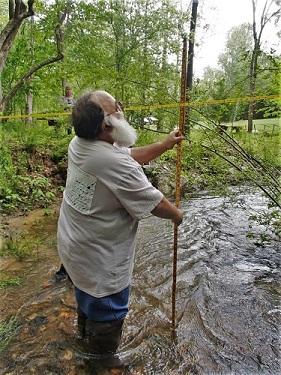
Over the course of this workshop, volunteers will learn how to assess the condition of a stream by viewing and measuring its physical characteristics, such as calculating flow, taking a channel cross-section, and characterizing stream sediment. Additionally, this workshop will discuss how to conduct a stream habitat survey, in which volunteers give scores to certain characteristics, like bank stability and vegetative buffer, to evaluate a stream's health and how readily it could support aquatic organisms.
This workshop may count as 2 hours of Georgia Standards of Excellence professional development.
Amphibian Monitoring Workshop
~ 3 hours
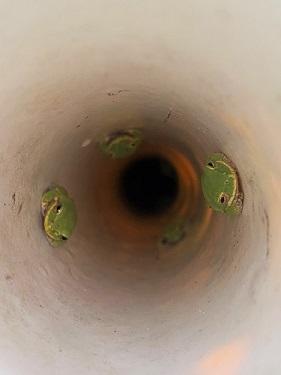
Learn how to monitor for amphibians (frogs and salamanders) through passive methods. Amphibians are found in a variety of upland and aquatic habitats including streams, wetlands, and lakes. This workshop will focus on training volunteers in monitoring techniques such as setting up tree frog refugia and coverboards. Volunteers will also learn about general life history, safe handling procedures of amphibians, and the importance of gathering life history information for conservation planning. Volunteers who attend will be considered an amphibian monitoring volunteer.
Wetland Monitoring Workshop
~ 3 hours
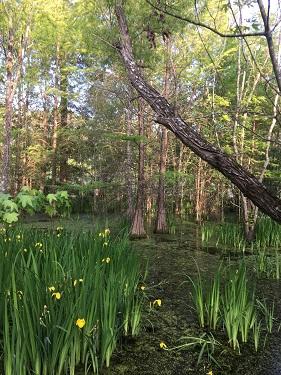
Adopt-A-Stream’s Wetland Monitoring Program immerses participants into the amazing world of wetlands. During this workshop, participants will learn about Georgia’s wetland types and how to classify wetlands based on their soils, hydrology and vegetation. The workshop will also introduce them to challenges facing wetlands and provide the tools necessary to participate in their protection. Volunteers who attend this workshop will be considered a freshwater wetland monitoring volunteer.